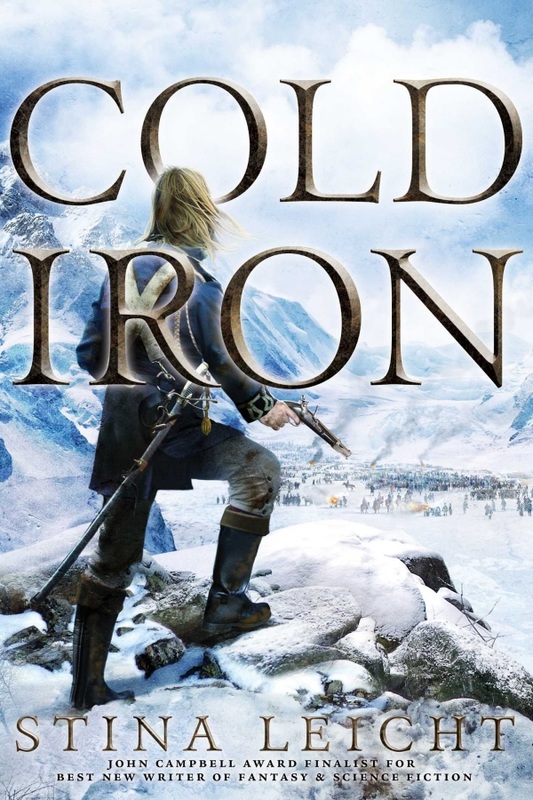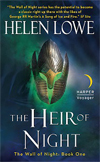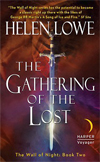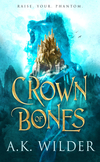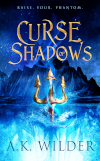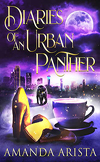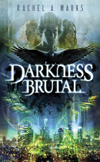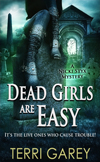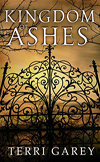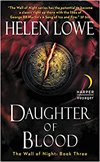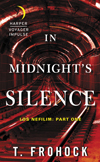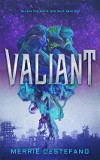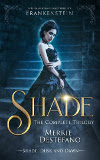.
In last month's post, I focused on when a book's "big bad" can also be a great leader. This month, I want to hone in on Signe de Barbentain in A Song for Arbonne by Guy Gavriel Kay.
Signe is definitely on the side of the angels, but she has also had
leadership thrust upon her, in a country -- Arbonne -- divided by a
bitter rivalry for the past quarter century.
For starters, she is an old woman, and the widow of Arbonne's ruling Count, rather than having always held the throne in her own right. The reason she does so now is because her husband died without an heir -- and the divisive rivalry is between the heads of Arbonne's two most powerful political and military families. So Signe, despite her age, must rule alone and in her own right, in order to hold the balance of power, and keep the peace, between the two.
What further complicates the situation for Signe, is that the cause of the feud was her daughter, Aelis. Aelis was married to one great nobleman, Urte de Miraval, but fell in love with the other, Bertran de Talair. She died in childbirth, but brought matters to a head by revealing the affair to Urte and telling him Bertran was the father of her child -- who also died, leaving no heir to Arbonne and a bitter feud between the two men. By the time Signe comes to rule alone, the rift is irreconcilable.
The problem for Signe is that Arbonne's neighbour, the militarily powerful and fervently religious nation of Gorhaut, makes no secret of its ambition to annexe Arbonne -- an ambition fueled by Gorhaut's desire to eradicate the worship of the goddess Rian, which prevails in Arbonne.
Under such circumstances, Arbonne needs unity desperately, because unless Urte and Bertran reconcile, Gorhaut will conquer it. As Countess, Signe must strive to prevent that outcome. She also knows that Urte and Bertran will never work together, despite considerable effort by herself and other Arbonnais leaders. (Including 'influencers', as we would say. :-) )
Signe's unenviable dilemma is brought to a head when a very high-ranking Gorhautian noblewoman, Rosala de Garsenc, arrives in Arbonne requesting political sanctuary for herself and her about-to-be-born child. This is a considerable test for Signe in terms of living her "side of the angels" values, because granting it will give Gorhaut the perfect pretext to invade.
The easiest, and most politically expedient, course for Signe would be to refuse Rosala and send her and the child back, irrespective of the adverse fate that awaits them. But although Signe is old, and tired, she is also astute. She understands that Gorhaut will invade at some point regardless, but most probably soon, and that sending Rosala back will very publicly negate the values that Arbonne -- and the disputed worship of the goddess Rian -- claim to stand for. So in bowing to Gorhaut, Arbonne will appear weak and craven, eroding public confidence and causing its allies to waver.
In other words, Signe is capable of evaluating both immediate threats and a bigger picture, and -- however old, and physically frail -- of making the big calls. Yet the elephant in the Arbonne room is always the feud between Miraval and Talair, and defying Gorhaut will lay bare its consequences.
Signe's dilemma is that Bertran de Talair is the most able military leader and must lead Arbonne's defense -- but if he does, Urte de Miraval won't fight himself or field Miraval's considerable military force. An impossible decision, but as ruler, Signe must make it. She appoints Bertran, as she must, and Urte withdraws. Leaving Arbonne's defense a forlorn hope, or so we think...
[Herewith a "Spoiler Alert" for anyone who hasn't read this book, but thinks they might like to.]
Signe realizes the only way to save Arbonne is to accept that she can't reconcile or compel Urte and Bertran, so she must come up with an alternate plan based on their division. But to work, complete secrecy must be maintained -- not only from Gorhaut, but from Arbonne's allies and the rest of Signe's leadership team. Only one other person, necessary to make it work, can be privy to the plan.
Here's the thing, though. Like many such secret plans, it's high risk and requires Signe to proceed on the basis of trust, even if she cannot be entirely certain of her ace in the hole. So Arbonne's fate rests on a gamble, but also Signe's nerve, wit, and determination in playing for the highest stakes.
So when I look across the array of leaders present in the Fantasy and Science Fiction genres, Signe de Barbentain is right up there in the ranks of the great. Among the many qualities that qualify her for greatness, the foremost (in my 'umble opine :-) ) is Signe's ability to accept what cannot be changed. Then use it, to defend the country, and way of life, she loves.
~*~
About Helen Lowe
Helen
Lowe is an award-winning novelist, poet, and lover of story. With four
books published to date, she is currently completing the final
instalment in The Wall Of Night series.
.
Helen posts regularly on her “…on Anything, Really” blog, monthly on the Supernatural Underground, and tweets @helenl0we.
......................................~*~

 I've been an avid reader since grade school, and I have never, ever stopped. I read while I'm on the treadmill. I read while I eat my lunch. I read while I'm on a plane. I read while I'm at the beach, or in a waiting room, or at the hair salon. I read, read, read, and then I take the lessons I've learned from that reading and I try to craft a few great stories, well-told, of my very own, for others to enjoy. Basically, if I'm not writing, gardening, exercising or sleeping, I'm reading!
I've been an avid reader since grade school, and I have never, ever stopped. I read while I'm on the treadmill. I read while I eat my lunch. I read while I'm on a plane. I read while I'm at the beach, or in a waiting room, or at the hair salon. I read, read, read, and then I take the lessons I've learned from that reading and I try to craft a few great stories, well-told, of my very own, for others to enjoy. Basically, if I'm not writing, gardening, exercising or sleeping, I'm reading!












